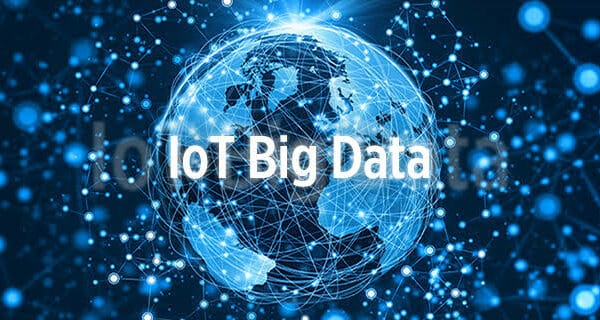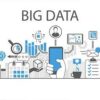The internet has changed how people interact, businesses operate and how governments function. The current digital technologies have us on the brink of opportunities in business that were previously unheard of. The change will involve all stakeholders; from the private and public sectors, to those in academia and even those in civil society. The first industrial revolution used steam power to mechanize production. The second used electricity to enable mass production. The third used electronics and information technology to automate production. The fourth industrial revolution, that we are currently experiencing, builds on the third by fusing technologies blurring the lines between the physical, digital and biological spheres.
What is Big Data?
According to IBM, we create 2.5 quintillion bytes of data each day. This data comes from social media posts, sensors used to gather climate information, cell phone signals, digital pictures and videos, emails, purchase transaction records to name a few. This is referred to as big data. Of all this, there is nothing that can be quantified as data trash. Data that may be deemed invaluable simply hasn’t been mined enough for its use to be understood. The Gartner industrial analyst Doug Laney came up with the famous 3Vs which are the driving dimensions of big data. These are:
• Variety: data comes in all formats-structured and unstructured.
• Velocity: data comes in at unprecedented speeds and need to be dealt with in a timely manner. Technologies such as RFID tags and sensors make it necessary to deal with a bulk of data in near real time.
• Volume: organizations collect data from a myriad of sources as mentioned above. For all this data being produced, it also needs to be stored. The cost of storing a terabyte of data has fallen from $1 million in the 1970s to $50 today. This has been attributed to the increase in storage capacity as well as the ability to store data in smaller footprint. With storage systems getting cheaper, simpler and more powerful, companies are able to store, index and process all their data on one platform.
Big Data and Industrialization
The importance of big data is not about how much data you can collect but on how much you can analyze. With high-speed and low-cost processors, computers and sensors, big data takes mass customization achieved by use of information technology in the third industrial revolution to the next level. The bulk of data produced by each individual each day can be continuously analyzed to modify products and services to achieve mass personalization. Consumer trust and loyalty is important for this. Manufacturers therefore need to ensure information flows to the consumers to enable them to give up their information.
According to a survey by PWC, 35% of manufacturers in the US are using sensors in their factories. 38% had embedded sensors in products to ensure consumers collect sensor generated data. The data generated is later analyzed enabling them to monitor the factories in real time thereby increasing efficiency. They are also able to predict consumer behavior and anticipate the bullwhip effect. Companies are also able to keep up with the globalization trend with translation management systems enabling them to monitor all their stations in different parts of the globe.
This smart manufacturing solution ultimately helps them in:
1. Cost, energy and time reduction
2. Increased product revenue
3. New product development and optimization
4. Less need of human resource
Big data not only changes how we interact but also how we do business. These technologies are so fundamental to the operation of businesses today that most executives believe in the need to urgently adopt big data technologies or risk losing their market positions.
Dennis Hung is an entrepreneur and product analyst specializing in mobile technology and IoT. He’s spent most of his career consulting for businesses in North America.


























































































































































































